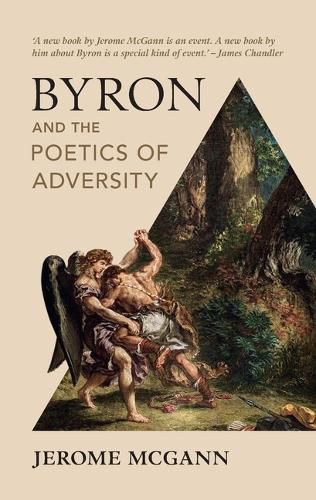Readings Newsletter
Become a Readings Member to make your shopping experience even easier.
Sign in or sign up for free!
You’re not far away from qualifying for FREE standard shipping within Australia
You’ve qualified for FREE standard shipping within Australia
The cart is loading…






A long line of traditional, often conservative, criticism and cultural commentary deplored Byron as a slipshod poet. This pithy yet aptly poetic book, written by one of the world's foremost Romantic scholars, argues that assessment is badly mistaken. Byron's great subject is what he called 'Cant': the habit of abusing the world through misusing language. Setting up his poetry as a laboratory to investigate failures of writing, reading, and thinking, Byron delivered sharp critical judgment on the costs exacted by a careless approach to his Mother Tongue. Perspicuous readings of Byron alongside some of his Romantic contemporaries - Burns, Blake, Wordsworth, Coleridge, Shelley - reveal Byron's startling reconfiguration of poetry as a 'broken mirror' and shattered lamp. The paradoxical result was to argue that his age's contradictions, and his own, offered both ethical opportunities and a promise of poetic - broadly cultural - emancipation. This book represents a major contribution to ideas about Romanticism.
$9.00 standard shipping within Australia
FREE standard shipping within Australia for orders over $100.00
Express & International shipping calculated at checkout
A long line of traditional, often conservative, criticism and cultural commentary deplored Byron as a slipshod poet. This pithy yet aptly poetic book, written by one of the world's foremost Romantic scholars, argues that assessment is badly mistaken. Byron's great subject is what he called 'Cant': the habit of abusing the world through misusing language. Setting up his poetry as a laboratory to investigate failures of writing, reading, and thinking, Byron delivered sharp critical judgment on the costs exacted by a careless approach to his Mother Tongue. Perspicuous readings of Byron alongside some of his Romantic contemporaries - Burns, Blake, Wordsworth, Coleridge, Shelley - reveal Byron's startling reconfiguration of poetry as a 'broken mirror' and shattered lamp. The paradoxical result was to argue that his age's contradictions, and his own, offered both ethical opportunities and a promise of poetic - broadly cultural - emancipation. This book represents a major contribution to ideas about Romanticism.